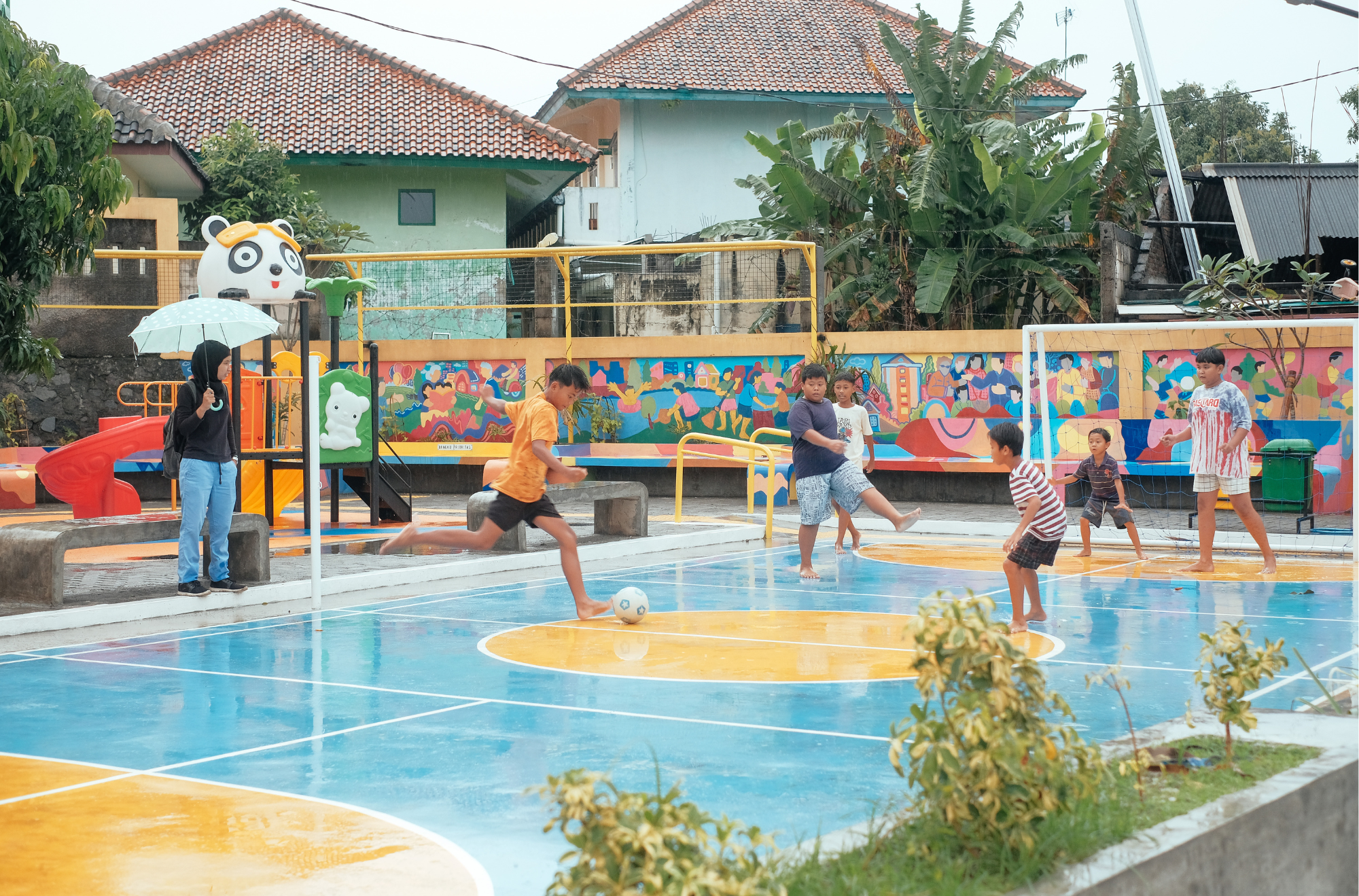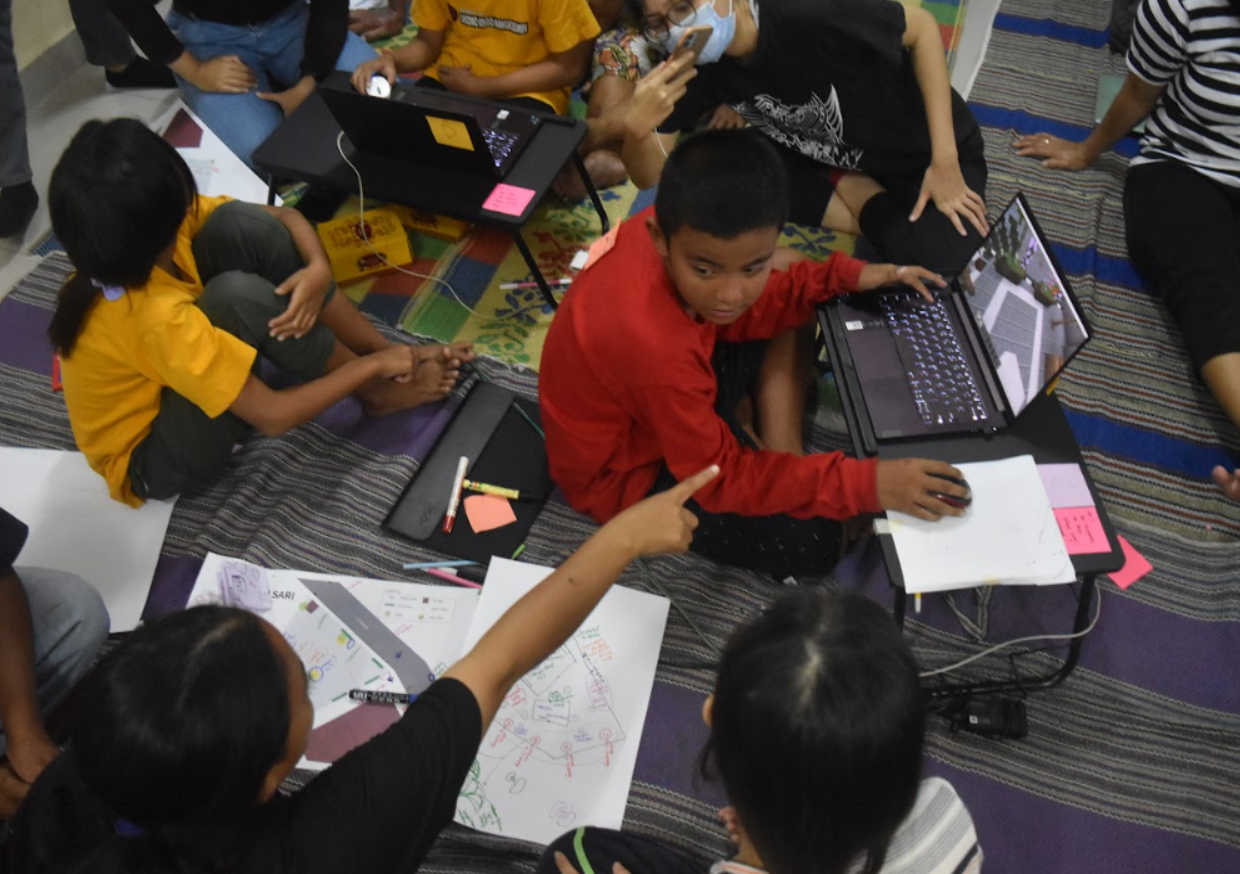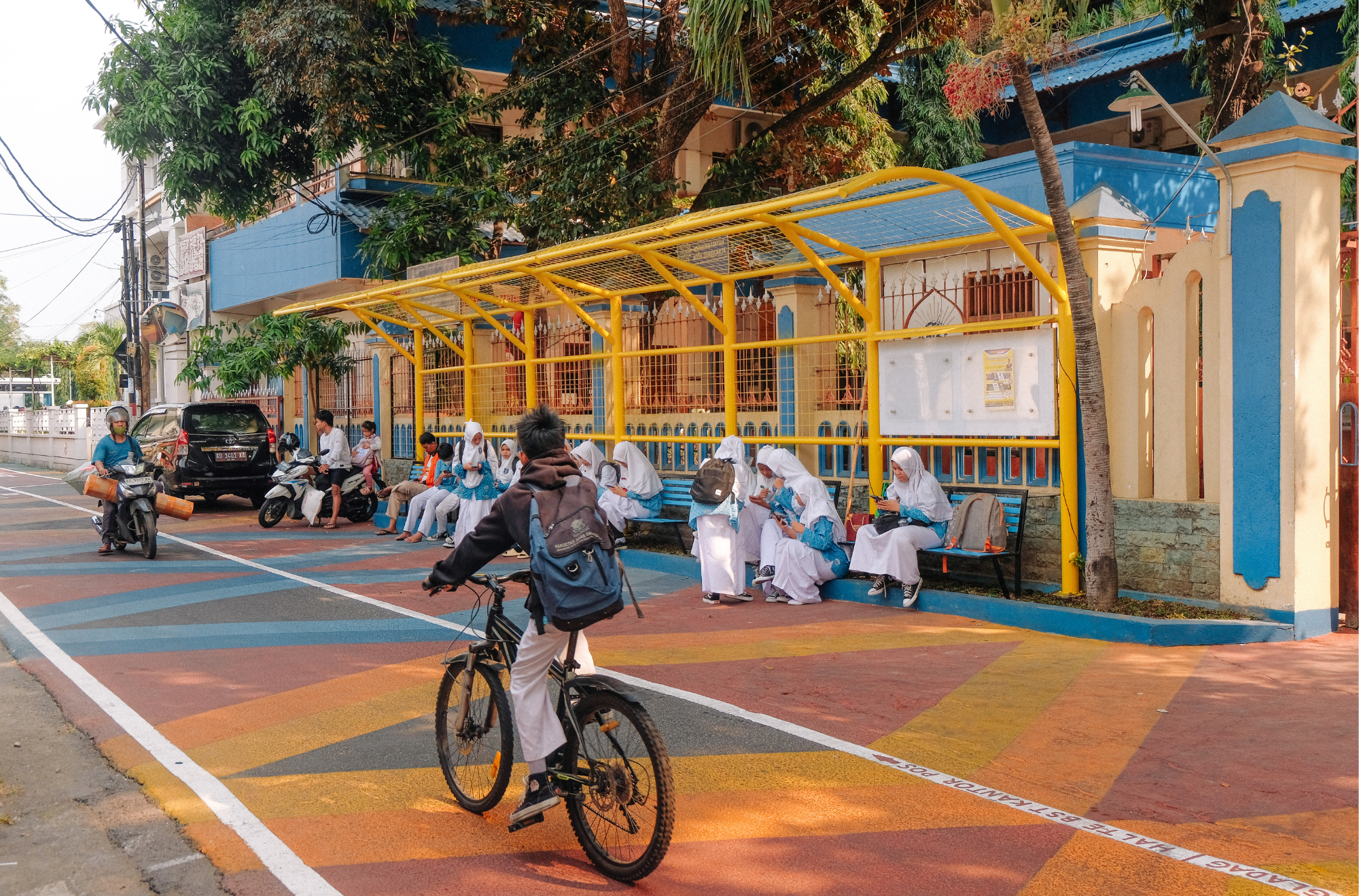Indonesia
City of Surakarta (Indonesia)
01-10-2021
Experience started in 2021 and initiatives developed until 2023
31-12-2023
The "Surakarta Inclusive City Movement" in Surakarta (also known as Solo), Indonesia, is a participatory democracy initiative aimed at creating more inclusive and accessible urban public spaces. Through a multi-stakeholder and participatory approach, this initiative involves citizens—especially children and the most vulnerable groups—in the design of streets and parks tailored to their needs. Two flagship projects carried out between 2021 and 2023 illustrate this approach: the Taman Rukun Mangkubumen neighborhood park and the child-friendly "Sukaria Street for Kids".
The initiative primarily aims to reverse the dynamics of urban development in Indonesia by more regularly and permanently involving citizens as agents of change within the city. The project seeks to make urban spaces more inclusive, to promote the expression of local urban habits—particularly those of children and low-income households—and to strengthen citizens' capacities to participate in planning processes. The goal is also to foster a sustainable transformation of local policies by incorporating the users' voices into urban planning, alongside sector specialists and political entities.
The movement directly involved around 380 children and 300 adults from various neighborhoods in the city of Surakarta. The children, especially students from Muhammadiyah 1 Surakarta Secondary School, played a central role in the project and in designing "Sukaria Street for Kids".
The adult participants included teachers, parents, residents from low-income neighborhoods, as well as representatives from the local government and partner organizations. This broad range of participants reflects a commitment to social, intergenerational, and inclusive representation.
This project received the Special Mention for the participation of children and youth at the 18th OIDP Award for the "Best Practice in Citizen Participation".
Surakarta, also known as Solo, is a major city in the Central Java province of Indonesia. It spans 44.02 km² and has about 530,000 inhabitants. Despite the city's modest share of open public spaces (12.45%), these areas are essential to urban quality of life. As in many Indonesian cities, urban planning in Surakarta has long been dominated by a top-down approach, excluding vulnerable groups—particularly children, the elderly, people with disabilities, and low-income households—from decisions affecting their daily environment. This is compounded by a restrictive vision of public spaces, centered around formal and institutional places, often inaccessible and ill-suited to residents' daily needs. In Indonesia, citizen participation is progressing through initiatives such as participatory budgeting and digital public consultation platforms. However, these efforts are unevenly distributed across regions and sometimes hindered by local governance challenges.

In this context, the Kota Kita Foundation, in partnership with the local government of Surakarta, launched the "Surakarta Inclusive City Movement". This movement is based on an innovative citizen participation methodology to design more equitable urban spaces. It was implemented through two pilot projects: the Taman Rukun Mangkubumen park, built near social housing on the banks of the Kali Pepe River, and Sukaria Street for Children in the Kampung Baru neighborhood, around Muhammadiyah 1 School. These projects mobilized various participatory techniques, including playful tools like the Minecraft game, illustrated maps, figurines, and handcrafted objects that allowed even the youngest participants to express themselves.
Children were no longer considered mere beneficiaries but "kid planners" capable of proposing concrete solutions. Their active involvement helped design appropriate facilities, such as comfortable shelters, road safety zones, and spaces for artistic expression. The workshops, held in March 2023, were followed by an inauguration in October 2023, marked by the symbolic use of inverted periscopes to allow adults to see the street from a child's perspective.

The process was supported by many partners: Kota Kita Foundation as the project lead, the Global Designing Cities Initiative as a technical expert, the city's Department of Transportation as an institutional partner, and several schools and local groups. This collaboration enabled not only the physical realization of the projects but also a shift in mindset about the role of children and citizens in shaping their city.
Beyond the visible results, this movement has created a lasting dynamic in Surakarta: the government has expressed interest in expanding these participatory practices to other areas, including integrating these models into social housing planning and child-friendly streets. The Surakarta initiative is becoming a reference in urban participatory democracy in Indonesia, showing that a more inclusive city is possible when everyone can truly take part in its creation.

More informations: